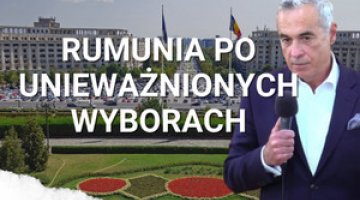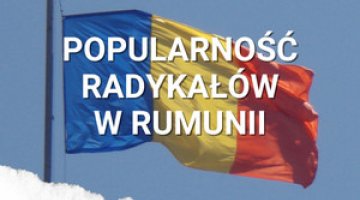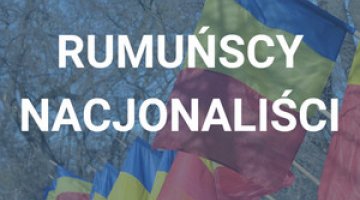President Iohannis’s first steps in foreign policy – how much change, how much continuation?
Klaus Iohannis’s victory in the presidential election last November has provoked a number of questions about the way he might influence Romanian foreign policy. Iohannis was an activist representing the interests of the German minority for many years and served as the mayor of Sibiu, a city in Transylvania. In his first public-statements as president he gave assurances that previous policy would be continued. However, a number of new elements have been noticed in less than three months of his presidency. His predecessor, President Traian Basescu, viewed co-operation with the United States as an absolute priority. Meanwhile, President Iohannis, emphasising the importance of the strategic partnership with the USA, has already contributed to a revival of contacts with Germany. The new president has upheld support for sanctions imposed on Russia in connection with the conflict in Ukraine but, unlike his predecessor, he has avoided using strong rhetoric with regard to Moscow. Concerning relations with Moldova, Iohannis does not use the unification rhetoric promoted by Basescu.
The president’s role in determining Romania’s foreign and security policy
Klaus Iohannis defeated the Social Democratic prime minister, Victor Ponta in the presidential election and gained powerful instruments to influence the country’s foreign and security policy. In Romania, these competences are shared by the government and the president, but the president sets the strategic lines of foreign policy. In addition to the usual prerogatives (representing the country in the international arena and control of the armed forces), the president chairs the Supreme Council of National Defence (CSAT), which coordinates security and defence policy under the constitution. The president also presents parliament with candidates for the heads of the key secret services. Bitter competence disputes were seen between the head of state and the prime minister during Basescu’s presidency. Examples of these included the dispute in mid 2006 over the speed at which Romanian troops were withdrawing from Iraq (President Basescu caused Prime Minister Calin Popescu Tariceanu’s initiative aimed at withdrawing the troops at a faster rate to be blocked at CSAT forum), and the dispute over participation in the European Council’s summits in 2012 (Prime Minister Victor Ponta argued that the head of the cabinet should take part in them and made an attempt to represent the country at EU summits; however, finally, the Constitutional Court ruled that this was a prerogative of the head of state). Meanwhile, a strong pro-Atlantic and pro-European approach in foreign and security policies was maintained for years.
President Iohannis currently has the highest approval rating (65%) in the country, and has been strengthening his public image by avoiding the prickly disputes with the government which were characteristic of Basescu’s presidency. His co-operation with Prime Minister Ponta has so far gone smoothly. Under the guidance of Iohannis all parliamentary forces agreed that defence expenses would reach 2% of GDP by 2017 and remain at this level until 2027. In February, the parliament, where the Social Democrats are dominant, almost unanimously supported the presidential nomination of Eduard Hellvig, a politician representing the opposition National-Liberal Party (Iohannis ran for the presidency as the candidate of this party) for the head of the Romanian Intelligence Service (SRI, civilian counterintelligence). The presidential initiatives have been supported by a parliamentary majority, and Prime Minister Ponta, whose position has been weakened due to his defeat in the presidential election, has steered clear of any disputes with the president.
Iohannis’s priorities in foreign policy – a turn towards Germany?
Iohannis appears to be much more interested in domestic policy than foreign. In his speeches, he has emphasised above all the need to reconstruct the public institutions and has upheld a campaign of combating corruption. He also wishes to launch reforms covering the electoral system, healthcare and education. As regards foreign policy, he wants to continue the main policy lines: strengthening Romania’s position in the EU and NATO, and the strategic partnership with the United States. However, in practice, European integration issues have been given top priority. The leitmotif of his first visits to Brussels, Paris and Berlin was unblocking Romania’s route to the Schengen Area (allegedly the Schengen regime could be introduced in Romanian airports this year). Romania met the formal membership requirements already in 2011, but its accession has been blocked for political reasons. Romania also wants EU co-operation and a verification mechanism, covering the monitoring of its progress in combating corruption, to be lifted. The president has also confirmed that he wants Romania to join the eurozone.
A new beginning was seen in Romanian-German relations in the first months. During his visit to Berlin Iohannis said that he viewed Germany as one of the key partners not only in the EU but also “globally”, and emphasised the role of Chancellor Angela Merkel in resolving the conflict in Ukraine. The German Minister of Foreign Affairs during his recent visit to Bucharest backed the idea to resume the talks on the enlargement of the Schengen Area. The impression of the “turn towards Germany” has additionally been magnified by the presidential nominations: the former Romanian ambassador to Berlin was nominated advisor for foreign policy, and the nomination of Hellvig, who had written in his blog that it was necessary to create a Bucharest-Berlin-Washington axis.
Hints of the intention to enhance co-operation with Germany have given rise to a number of speculations concerning the future of the country’s pro-Atlantic orientation in Romanian public debate. These speculations have been fuelled by the fact that Iohannis’s visit to Washington has not yet been scheduled and above all by the fact that relations with the United States have been given the greatest attention in Romania’s foreign policy for at least fifteen years. However, Romania is unlikely to draw back from close co-operation with the USA in the area of security policy. Romania has already achieved essential goals in this area, and the US military presence in this country is stronger than in other countries in the region. At the time of Basescu’s presidency, Romania granted consent to the deployment of elements of the US missile-defence system in Deveselu (to be put into operation by the end of 2015), provided access to its Mihail Kogalniceanu airbase, which has been used for the redeployment of US troops from Afghanistan, has taken part in the missions in Iraq, Afghanistan and Libya, and has co-operated closely with the US intelligence services. As a consequence of the conflict in Ukraine, Romanian-US military exercises have intensified and the presence of US warships in the Black Sea has become stronger.
The policy on the Russian-Ukrainian conflict will continue
The conflict in Ukraine remains a major security challenge for Romania, and Iohannis’s first moves fit in with the previously adopted line of supporting Ukraine’s territorial integrity and the principled stance on Russia. Iohannis has upheld support for the sanctions imposed on Russia but differs from his predecessor in avoiding the use of strong rhetoric with regard to Moscow. Furthermore, he has recognised possible supplies of weapons to Ukraine at the present stage as inadvisable, and has demonstrated strong support for Germany in its efforts to implement the Minsk Accords.
The Russian-Ukrainian conflict has added a new dynamism to Romanian-Ukrainian relations over the past year. Bilateral contacts, which had for years been weighed down for example due to national minority issues, have improved. Bucharest has condemned Russia’s moves in Ukraine and did not hesitate to support the imposition of sanctions on it. Romania was also one of the first EU member states to ratify the Association Agreements with Ukraine and Moldova. The signing of the agreement on small border traffic and the acceptance of the coordination of support for Ukraine’s cyber-security in NATO’s Trust Fund have been further proof of a new quality in its relations with Kyiv.
The new rhetoric in relations with Moldova
As regards relations with Moldova, which are traditionally given a high priority in Romanian foreign policy, Iohannis is continuing the previous policy of supporting this country’s pro-European policy. He offered assistance in the form of sharing Romania’s experience in combating corruption during his visit to Chisinau in late February. The idea that Moldova and Romania should become one state, promoted by the former president Basescu to the dissatisfaction of the majority of the Moldovan elites, made relations with Moldova more complicated. This rhetoric is clearly not employed by President Iohannis, and thus Romania’s policy with regard to Moldova will be less problematic.




